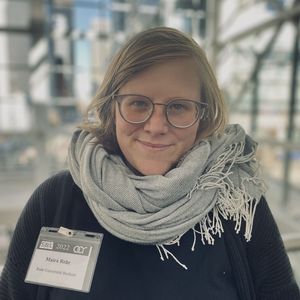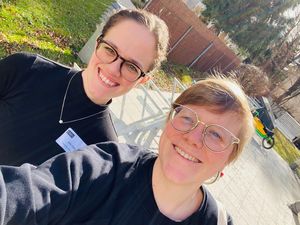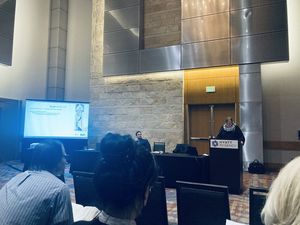Collective Identity in Ezra/Nehemiah and Ruth
The Research Project

My Ph.D. project concerns the question of how collective identity and boundaries between social groups were constructed through the texts of Ruth and Ezra-Nehemiah in the Second Temple period. Ruth and Ezra-Nehemiah are books of the Hebrew Bible (Altes Testament) that are dated in the Second Temple period. This period in Jehud (516-70 BCE) was deeply influenced by identity conflicts.
Due to the exile policies of the Babylonians, the Judean upper class and skilled workers were deported to different places in the heartland of Babylon after the fall of Jerusalem and after ensuing uprisings in Jerusalem (598/7 BCE, 587/6 BCE; 582 BCE). The Judean exiles formed their new identity and created new identity markers like circumcision and Shabbat. After the capture of Babylon by the Persians (539 BCE) power relations shifted and the Judean exiles were allowed to return. The Second Temple period began. In the perspective of the book Ezra-Nehemiah, the former exiles caused a restoration and enforced not only the rebuilding of the temple and wall of Jerusalem but also a rigid demarcation from other social groups in Jehud. However, this is not the only position during in that historical context concerning boundary work. The book Ruth offers another model. In this book, Ruth, a foreign wife, demonstrates loyalty towards Naomi, a Judaic woman, and therefore is integrated into the heart of Judaic society. Both books deal with the question of boundary work and therefore contribute to the construction of collective identity.
My focus will be on the question of how collective identity is actively produced through the texts and on the function of the figures, their characters, speeches, and acts in the process of identity formation. Certainly, the situations and interactions within the text do not mirror the situation of the emergence of the texts. However, the construction of the situation and interactions offers insights into how the authors imagined the ideal process of building a collective identity and how they tried to construct boundaries through these texts.
What I need the IRB for
The IRB gives me the opportunity to expand my knowledge and enlarge my networks of scholars working on the same topics or with similar approaches. It allows me to evolve my work through discussing it and gaining knowledge at conferences or during research visits.
Moreover, the IRB grant guarantees me a certain flexibility. As I am at the beginning of my Ph.D. work and since my project combines different methods and disciplines, the main focus could still shift in different directions. Through the grant, I gain the flexibility to adjust my plans of internationalization according to the state of my project.
IRB funded activities
Annual Meeting of the Society for Biblical Literature (November 2022)
I visited this year’s Annual Meeting of the Society for Biblical Literature (SBL) in Denver, Colorado, from November 19th-22nd. This annual meeting is one of largest conferences in our field. I presented a paper on the impact of forced migration on family structures in Ruth 4,11-17; and I also got in touch with many scholars working on topics close to my own. The lectures and especially the discussions afterwards and during the breaks were very enlightening. I am very grateful for the IRB that made it possible for me to present at SBL and meeting and connecting with all the scholars internationally. Hopefully, attending this conference leads to more fruitful discussions via E-Mail and Zoom.

EABS Annual Graduate Symposium, Graz (February 2024)
This February I presented a paper at the 16th EABS Annual Graduate Symposium that took place from the 21st to the 23rd of February in Graz. This is a conference for Ph.D. candidates and postdoctoral researchers organized by the European Association of Biblical Studies (EABS). My paper dealt with the use of emotive language in Ezra 9,1-5+10,1, and its possible intentions. I was thankful for the opportunity and the very fruitful discussion after my paper. Due to the concept of the conference, the participants had several opportunities to meet and hold conversations in the evenings, and on the last day. Therefore, I was able to connect with other Ph.D. candidates and postdoctoral researchers from all over Europe, which was a valuable experience.
- Forschungsbezogene Kompetenzen: Workshops & Veranstaltungen
- Karrierevorbereitung: Workshops & Veranstaltungen
- Forschungsmanagement Skills: Workshops & Veranstaltungen
- Liste aller Workshops & Veranstaltungen
- Förderprogramme zur Internationalisierung
- Beratung & Ombudsperson
- Promovierenden-Datenbank
- Welcome Hour
- Newsletter



